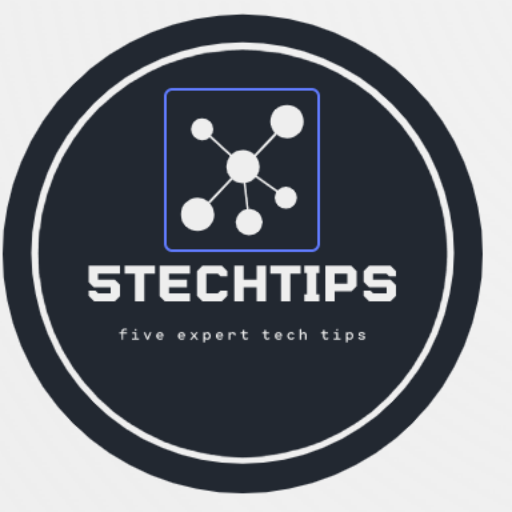In today’s digital landscape, content marketing has become crucial for businesses aiming to build brand awareness, establish authority, and drive customer engagement. Amidst the vast sea of content, educational content marketing emerges as a powerful strategy that not only captivates the audience but also provides valuable information that helps them solve problems or gain knowledge.
This article delves deep into educational content marketing, uncovering its significance, exploring effective strategies, and equipping you with the tools you need to succeed.
Educational Content Marketing: Unlocking Its Potential
Educational content marketing involves creating and sharing informative and relevant content that educates, inspires, and empowers your target audience. By delivering valuable knowledge or skills, you position your brand as an industry expert and a reliable source of information, fostering trust and building strong relationships with your audience.
The Power of Educational Content Marketing
Educational content marketing holds immense potential for brands seeking lasting impact. Here’s why it should be an integral part of your content strategy:
Establishing Authority
By providing valuable insights and expert knowledge, educational content positions your brand as an authority in your niche, elevating your reputation and credibility.
Building Trust
Trust is established when your audience perceives you as a reliable source of information. Trust forms the foundation of long-term relationships with your customers.
Driving Engagement
Educational content resonates with your audience’s desire for knowledge and personal growth, increasing engagement and encouraging social sharing.
Boosting Conversions
When you provide valuable content, your audience is likelier to engage with your brand, making informed purchase decisions and becoming loyal customers.
Effective Strategies for Educational Content Marketing
To make the most of educational content marketing, it’s essential to employ effective strategies that align with your brand and resonate with your target audience. Here are some tried-and-true methods:
1. Identify Your Target Audience
Before diving into content creation, it’s crucial to understand who your target audience is. Conduct thorough research to identify their demographics, interests, pain points, and preferred communication channels. This knowledge will help you effectively tailor your educational content to meet their specific needs.
2. Create a Content Calendar
Consistency is key in educational content marketing. Develop a content calendar outlining your publishing schedule, topics, and formats. This will ensure a steady flow of valuable content and help you maintain engagement with your audience.
3. Diversify Your Content Formats
To cater to different learning preferences and capture the attention of a wider audience, experiment with various content formats. Consider incorporating blog posts, videos, infographics, podcasts, webinars, and interactive quizzes into your educational content strategy.
4. Conduct Keyword Research
Optimize your educational content for search engines by conducting thorough keyword research. Identify relevant keywords and incorporate them naturally into your content, titles, meta tags, and headings to enhance organic visibility and attract the right audience.
5. Engage Your Audience with Storytelling
Craft compelling narratives around your educational content to captivate your audience and establish an emotional connection. Use storytelling techniques to present real-life examples, case studies, and success stories that resonate with your audience and inspire action.
6. Leverage User-Generated Content
Encourage your audience to contribute to your educational content by soliciting user-generated content. This can include testimonials, success stories, or even guest contributions. User-generated content enriches your content offerings and fosters a sense of community around your brand.
FAQs about Educational Content Marketing
1. How does educational content marketing differ from traditional advertising?
Unlike traditional advertising, content marketing focuses on providing valuable information rather than directly promoting products or services. It aims to educate and engage the audience, positioning the brand as an industry expert and building trust.
2. What types of educational content work best for B2B businesses?
B2B businesses can benefit from educational content such as whitepapers, case studies, webinars, and thought leadership articles. These formats allow them to showcase their expertise, address industry pain points, and build credibility among their target audience.
3. How can I measure the effectiveness of my educational content marketing efforts?
Key metrics to track the effectiveness of your content marketing include website traffic, engagement metrics (such as time on page and social shares), lead generation, conversion rates, and customer feedback. Utilize analytics tools to gain valuable insights and refine your strategy accordingly.
4. Is it necessary to create new content constantly, or can I repurpose existing content?
While creating fresh content is essential to maintain engagement, you can repurpose existing content in different formats to reach new audiences and reinforce key messages.
For example, you can transform a blog post into a video tutorial or create an infographic summarizing a comprehensive guide.
5. How can I promote my educational content effectively?
Promote your educational content through various channels, including social media platforms, email newsletters, industry forums, and guest posting on relevant websites.
Collaborate with influencers or industry experts to amplify your reach and establish your brand as a thought leader.
6. What are some common mistakes to avoid in educational content marketing?
Some common mistakes in educational content include using overly technical language, neglecting to optimize content for search engines, lacking a consistent publishing schedule, failing to engage with your audience through comments and social media, and neglecting to measure and analyze the effectiveness of your content.
Conclusion
In a digital world overflowing with information, educational content marketing is a beacon of value, building trust and driving meaningful engagement.
By understanding your audience, diversifying your content formats, and leveraging storytelling, you can create educational content that captivates, educates, and ultimately converts.
Embrace the power of educational content marketing, and witness its transformative impact on your brand’s online presence.

